This really is the age-old question that we are asked time and time again—should your air conditioner be repaired or replaced? Some homeowners are firmly in the “repair” category where they’d love to keep their 20-year-old air conditioner running as long as humanly possible. Other homeowners want a replacement the moment they see something wrong since they think something was botched, to begin with.
The truth is every situation is different and sometimes you’ll need a repair, and other times the most cost-effective solution will be a replacement.
For those concerned with making this decision, we’ve put together a little bit of a guide to help steer you in the right direction. For any repair or AC replacement in Shreveport, LA just remember to contact our team of professionals if you need a second opinion.

 Air conditioning systems don’t have a long history in homes. Not as long as electricity and indoor plumbing, for example. Central air conditioning installations only became common in the 1970s. Since ACs started spreading, homeowners have wondered if these cooling devices might cause indoor health complications.
Air conditioning systems don’t have a long history in homes. Not as long as electricity and indoor plumbing, for example. Central air conditioning installations only became common in the 1970s. Since ACs started spreading, homeowners have wondered if these cooling devices might cause indoor health complications.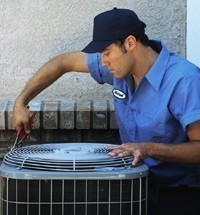 Your air conditioner probably isn’t running right now, and you may not have to turn it back on except on occasional days for the foreseeable future. After all, it’s late autumn now and the official start of winter is less than a month away—this is what we in the HVAC business called the “heating season,” when furnaces and other heaters do the heaviest of their workload for the year.
Your air conditioner probably isn’t running right now, and you may not have to turn it back on except on occasional days for the foreseeable future. After all, it’s late autumn now and the official start of winter is less than a month away—this is what we in the HVAC business called the “heating season,” when furnaces and other heaters do the heaviest of their workload for the year.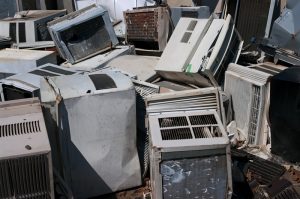 Making upgrades or full replacements to your air conditioning system are good projects to schedule during fall and even winter. After all, you don’t often need the AC working during these seasons, so you can take time to plan for the best outcome and won’t have to worry about being without a cooling system while the work is done.
Making upgrades or full replacements to your air conditioning system are good projects to schedule during fall and even winter. After all, you don’t often need the AC working during these seasons, so you can take time to plan for the best outcome and won’t have to worry about being without a cooling system while the work is done. The Halloween Season is when we can expect the crisper, cooler weather to arrive. But there’s no guarantee we’ll experience this break from the heat all month long. The hot weather can linger far into the fall, so we can’t stress enough that you must keep a watch on your AC system during this period so you won’t end up with an emergency.
The Halloween Season is when we can expect the crisper, cooler weather to arrive. But there’s no guarantee we’ll experience this break from the heat all month long. The hot weather can linger far into the fall, so we can’t stress enough that you must keep a watch on your AC system during this period so you won’t end up with an emergency.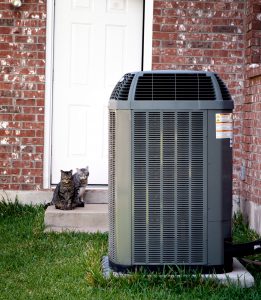 We may joke about how during our hot and humid Louisiana summers the air conditioners have to be running nonstop. Of course, there are cooler spells and evenings when ACs power down, and no air conditioner needs to power the compressor constantly to meet a home’s cooling demands. (At least, not if it was correctly sized for the space when it was installed.)
We may joke about how during our hot and humid Louisiana summers the air conditioners have to be running nonstop. Of course, there are cooler spells and evenings when ACs power down, and no air conditioner needs to power the compressor constantly to meet a home’s cooling demands. (At least, not if it was correctly sized for the space when it was installed.)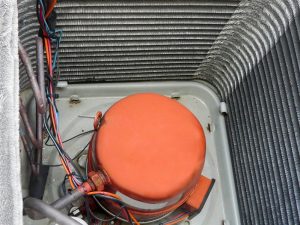 Your air conditioning system works hard on hot days—that’s what it’s there for, after all! But even an air conditioning system can get too hot, causing its motors to trip the circuit breaker to the system. You can reset the breaker, but it’s likely to happen again and again and again. Not an inconvenience you want during the summer!
Your air conditioning system works hard on hot days—that’s what it’s there for, after all! But even an air conditioning system can get too hot, causing its motors to trip the circuit breaker to the system. You can reset the breaker, but it’s likely to happen again and again and again. Not an inconvenience you want during the summer!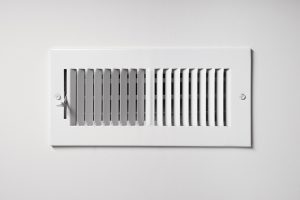 We once did a post on how
We once did a post on how 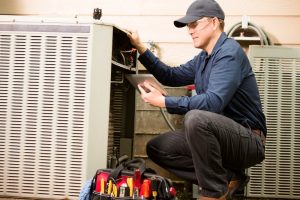 Where does the actual “cooling” in an air conditioner occur? It happens along the surface and fins of the evaporator coil, located in the indoor cabinet of the air conditioner—which is also known as the (surprise) evaporator. Warm air drawn through the return air ducts by a blower fan passed over the coil, and the cold refrigerant moving through the coil evaporates. This draws heat from the air (as well as moisture), lowering the temperature of the air. The air continues into the ventilation system and then to the various rooms around the house.
Where does the actual “cooling” in an air conditioner occur? It happens along the surface and fins of the evaporator coil, located in the indoor cabinet of the air conditioner—which is also known as the (surprise) evaporator. Warm air drawn through the return air ducts by a blower fan passed over the coil, and the cold refrigerant moving through the coil evaporates. This draws heat from the air (as well as moisture), lowering the temperature of the air. The air continues into the ventilation system and then to the various rooms around the house.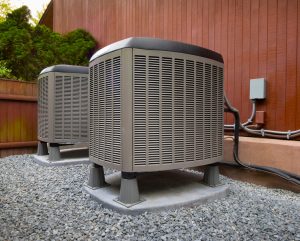 In our last blog post, we looked at the ways
In our last blog post, we looked at the ways 
